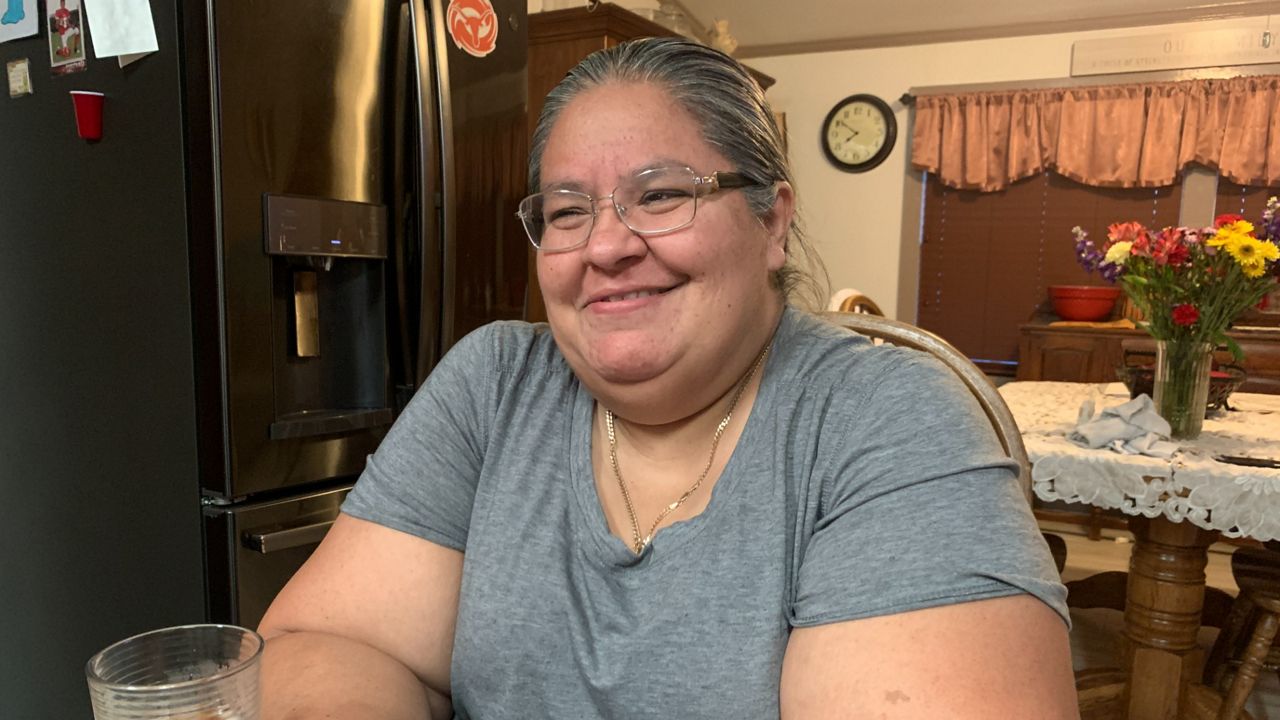AUSTIN, Texas – As the COVID-19 pandemic continues to have a disproportionate effect on Black and Hispanic communities, the start of school has experts worried that students of color are more vulnerable to falling behind their peers.
Access to high-speed internet, laptops or tablets, and an adult to supervise or facilitate virtual learning, are all key to students' academic success as many Texas schools have started the year with only an online option.
However, access to online learning tools is one of the biggest challenges minority communities face this fall, with alternatives being too expensive for low-income families.
That concern spurred one Austin woman to volunteer her spare time to address how existing racial inequities are exacerbated during the pandemic.
“I wake up at 6 in the morning at the latest," said Gloria Vera-Bedolla. "I clock in by 8 in the morning. And it just goes, goes, goes.”
As a working mom of three, Gloria Vera-Bedolla is used to multitasking. But juggling work and taking care of her youngest hasn’t been easy during the pandemic.
“Most of the time I feel like I’m failing her," said Vera-Bedolla.
Like most parents, she’s worried about how online school will go for her 6-year-old, Daniella.
“Virtual learning was horrible for us," said Vera-Bedolla. "We're not going to be able to do this thing where she's going to sit there in front of a computer for eight hours. It's not going to happen.”

She knows the challenges educators are facing, especially after working at Brooke Elementary last year.
“I started working there as a parent support specialist. I loved the work," said Vera-Bedolla. "You cannot work there more than a week or so before you fall in love with the kids.”
At Brooke, Vera-Bedolla started the Shared Shelf program, which provided food for families in need. But she left her job with the district at the end of the school year, after Austin ISD voted to close Brooke and three other elementary schools that served mostly Black and Hispanic students.
“I felt like a hypocrite going to work with the school district, and being so hurt by what was done. It wasn't done to me only. It was done to 279 kids," said Vera-Bedolla.
It sparked her drive to fight for racial equity in public education, an issue she’s even more worried about now during the pandemic.
“I know of kids there [at Brooke] that have gone without meals," said Vera-Bedolla. "They said, ‘Well if we don't go to school I don't get to eat.' That weighs on my mind all the time. This was five months ago. I wonder how those kids are doing now. I think about them all the time.”
So she joined a new nonprofit called Community Resilience Trust, which is working to address racial equity issues in Austin exacerbated by the pandemic.
“We're trying to find ways to help the most marginalized people - which is people of color," said Vera-Bedolla. "That's not easy work, but it's okay, it's necessary work.”
It's a mission that is very personal to her.
“I grew up very poor. People spent their summers working in the fields," said Vera-Bedolla. "I never want my kids to end up there, and I don't want any other kids to end up in that situation. And how do we do that? We educate them. We give them a voice and we tell them, 'Yeah, you can.'”
Vera-Bedolla says she’s lucky to have her family’s support in all that she does.
“Whenever somebody's going through a rough patch, we all rally around each other and, and just you do what you have to do because we can't afford to leave anybody behind," she said. .
It’s her message at home, and in the community.



